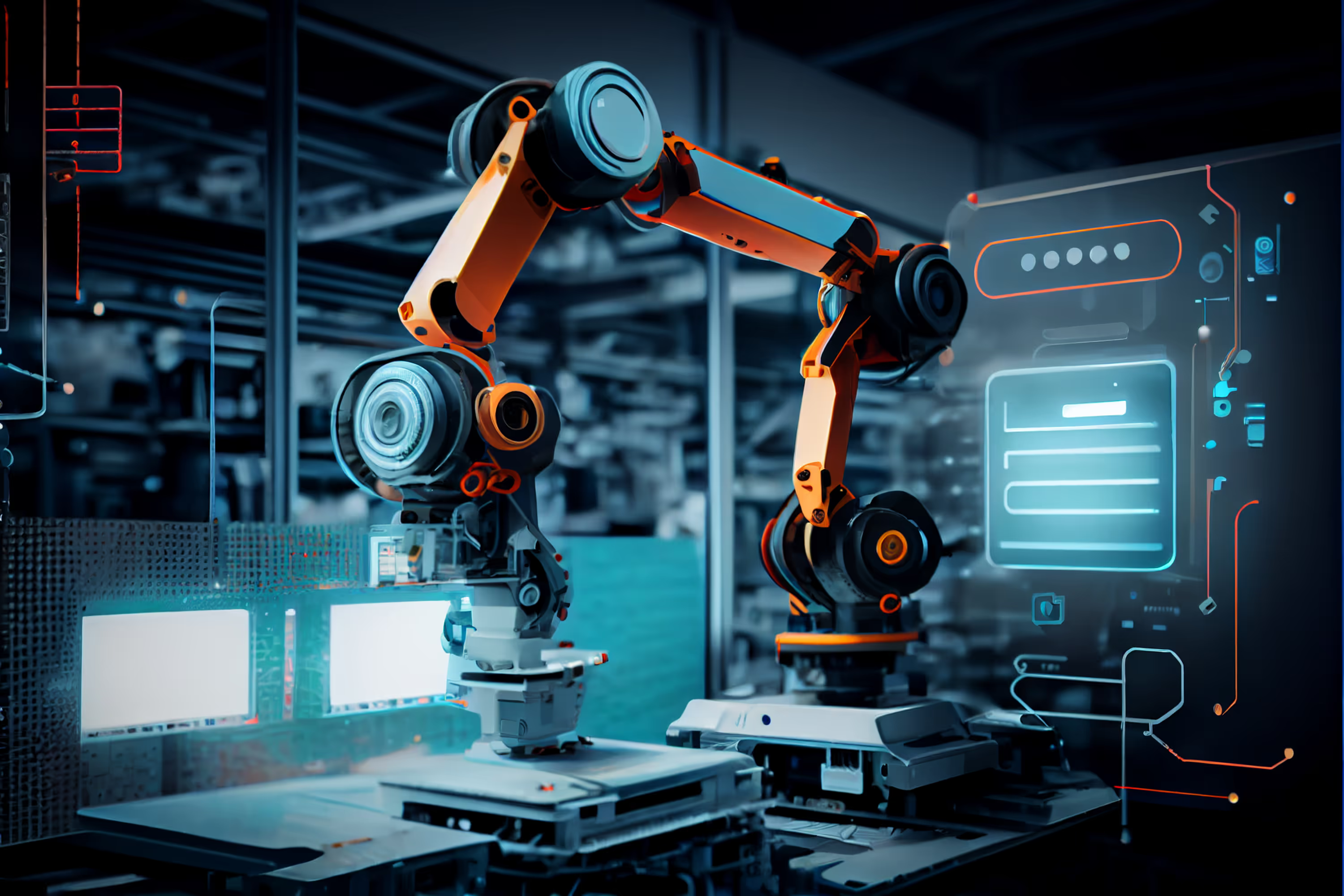The Role of 3D Technology in Manufacturing Decarbonisation
.avif)
The UK government has set a target to achieve net-zero carbon emissions by 2050. Manufacturers will play a critical role in whether the UK will achieve its net-zero target, which is why over 80% of businesses in the sector are citing sustainability as a key priority moving forwards (Confederation of British Industry).
Manufacturers looking to reduce their carbon emissions typically start at the production end, but this is just one aspect of the manufacturing process. Sales and marketing can be notably damaging to the environment when done in the traditional way, such as using paper for marketing materials and collateral, and travelling for sales pitches, demos and trade show events.
Hitting net-zero requires a more in-depth look at operations across the board, and that’s where 3D technology can be leveraged.
Manufacturing and Carbon Emissions: The Key Stats
To understand where 3D technology can aid decarbonisation, it’s important to first understand the current sustainability landscape where manufacturing is concerned.
- Carbon Emissions Contribution
Manufacturing contributes around 12% of the UK's total carbon emissions (Climate Change Committee). By adopting eco-friendly practices and technologies, manufacturers can make a substantial impact on reducing the UK’s overall carbon footprint.
- Energy Consumption
The manufacturing industry accounts for around 20% of the UK's total energy consumption (Gov). Embracing energy-efficient technologies and processes, like 3D sales and marketing, can significantly decrease energy use and associated carbon emissions.
- Digital Transformation Benefits
Implementing digital transformation in manufacturing processes can result in up to a 25% reduction in greenhouse gas emissions (World Economic Forum). Integrating 3D solutions can contribute to this digital shift and the resulting emissions reduction.
- Waste Reduction
Manufacturing generates substantial waste which contributes to carbon emissions during disposal. By adopting 3D virtual product configuration, manufacturers can reduce physical waste by up to 90% (Ellen MacArthur Foundation). This also permeates through to trade show events, which produce huge amounts of carbon emissions through stand waste and travelling.
- Customer Demand for Sustainability
A study by Deloitte found that more than 80% of consumers consider sustainability when making buying decisions. Manufacturers that integrate sustainable practices, including 3D technology for efficient marketing and sales, are likely to attract the growing number of environmentally conscious consumers.
- Economic Benefits
Decarbonisation yields financial benefits. In fact, McKinsey & Company estimates that UK manufacturers adopting sustainable practices could save up to £9 billion annually by 2030.
How 3D Technology Aids Decarbonisation
The MARTECH3D 3D sales and marketing platform is designed specifically to revolutionise and streamline manufacturing sales and marketing, including by making it more sustainable. Here’s how:
- Carbon Savings from Virtual Showrooms
Physical showrooms and events consume significant resources. By implementing 3D virtual showrooms with MARTECH3D, you can drastically reduce your carbon emissions by negating the need for physical, in-person demos.
According to a study by the Carbon Trust, virtual events emit up to 99% less carbon emissions compared to traditional physical events. For any manufacturer looking to hit net-zero, leveraging 3D environments is essential.
- Interactive Digital Twins for Sustainable Product Guides
Research from the World Economic Forum shows that digital transformation in manufacturing can reduce carbon emissions by 20%. Digital twins allow potential customers to explore, interact and learn virtually - eliminating the need for physical documents. With integrated product viewers, videos, and downloadable PDFs, making the move to 3D interactive product guides reduces transport and overall waste - contributing to sustainability goals.
- Streamlined Custom Product Production with 3D Product Configurators
McKinsey & Company reports that companies embracing personalisation and digital solutions can achieve up to 30% reduction in carbon footprint.
MARTECH3D's 3D product configurators allow customers to design and personalise products virtually. This not only accelerates the sales process, but it also optimises your manufacturing operations by reducing technical errors and waste, increasing sustainability as a result.
- AR Product Viewers for Eco-Friendly Decision-Making
A study by PwC found that AR technologies can cut travel-related carbon emissions by up to 58%. MARTECH3D’s AR product viewers provide an immersive experience for customers to visualise products in their own environment. This technology streamlines decision-making, reducing the need for physical prototypes and samples, and negating the need for travelling to meetings.
Conclusion
From virtual showrooms to interactive digital twins and AR product viewers, the evidence is irrefutable: embracing 3D technology leads to reduced carbon emissions, streamlined operations, and an achievable net-zero manufacturing future.
Book a demo with the MARTECH3D team today and witness firsthand how our platform can revolutionise your sales, marketing, and sustainability efforts.











.avif)







